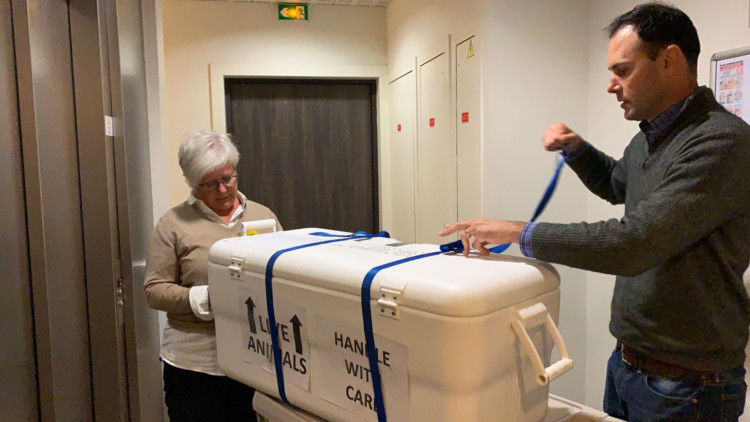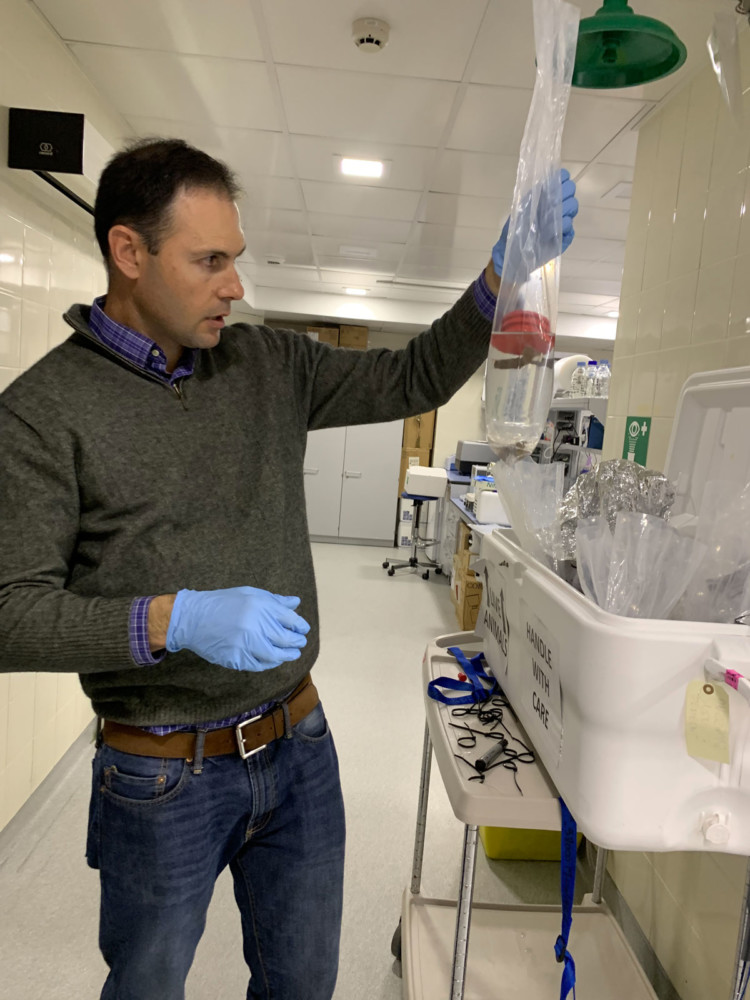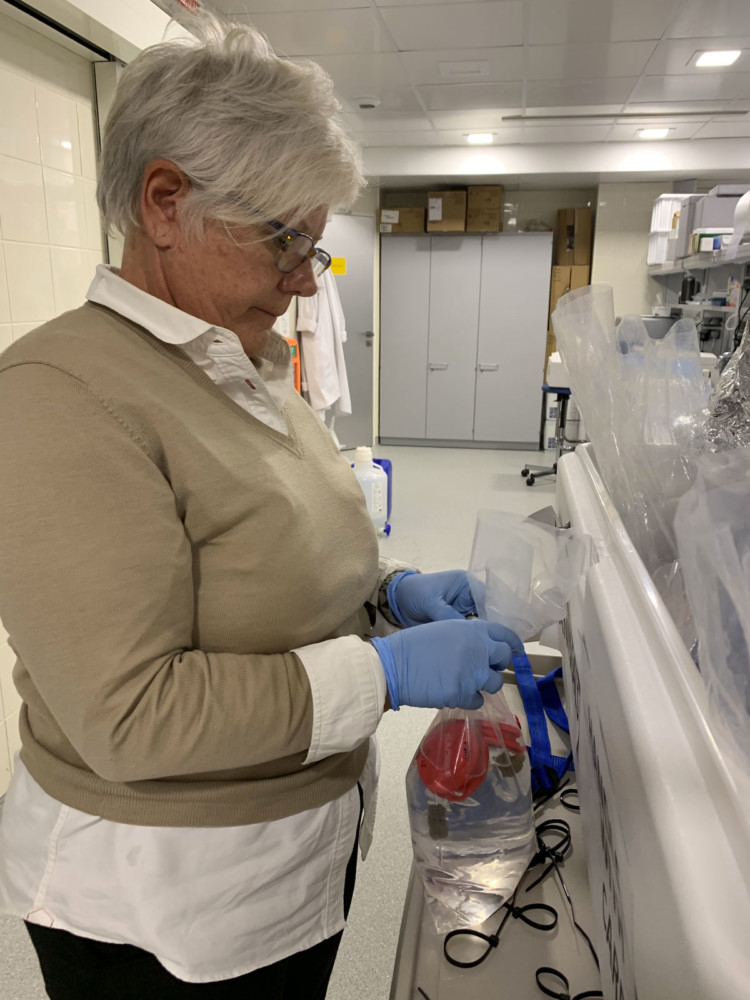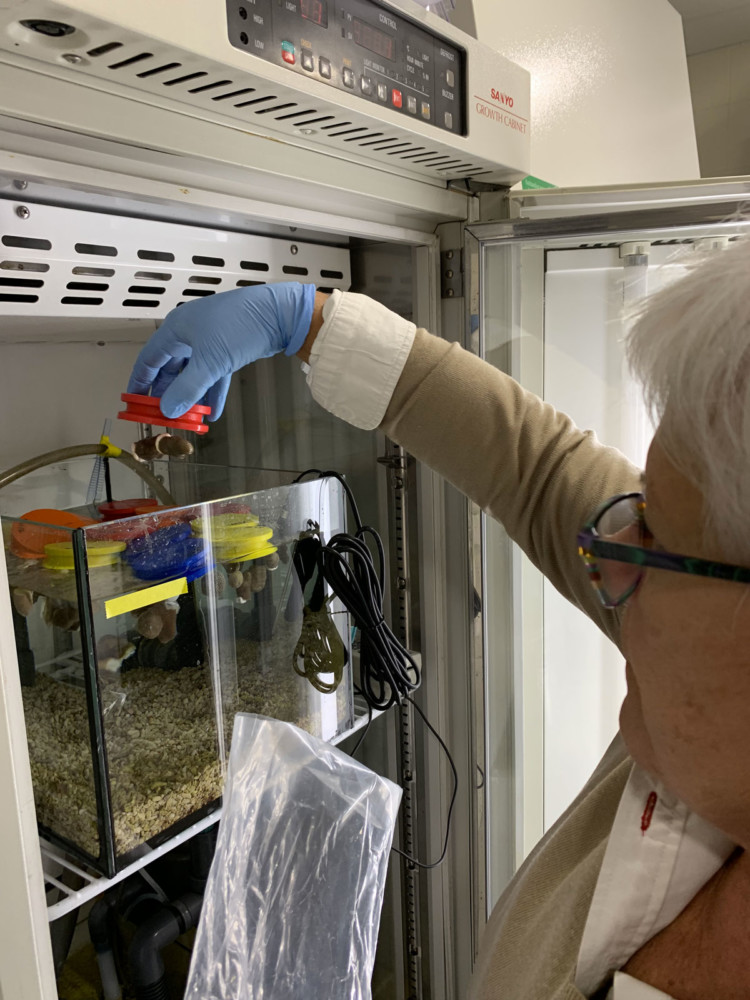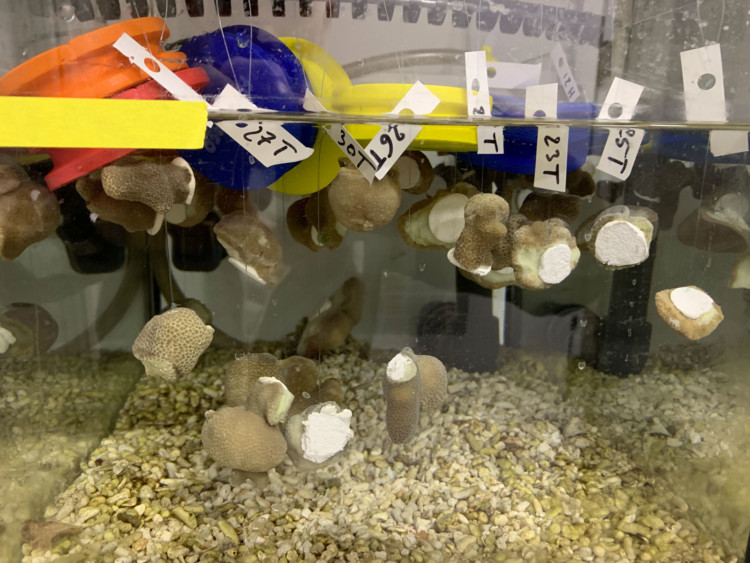The coral samples collected in Hawaii by Drs. Dorota Czerucka and François Seneca, researchers at Centre Scientifique de Monaco, have arrived at the laboratory and are alive and in good condition for continuing the research. The 140 samples include both healthy and diseased pieces of coral from colonies off the coast of Oahu Island in Hawaii. The research area is focused on innate immunity in the corals and in humans, and the researchers will study the means used by the coral to fight the diseased tissue.
[vc_row][vc_column][gem_divider margin_top=”25″][vc_column_text]David Mouillot is a Professor at the University of Montpellier (UMR MARBEC IRD-UM-CNRS-IFREMER).
What will you be researching, and why?
Our project will focus on marine megafauna (mainly large bony fishes, sharks and mammals) living close to reefs and seamounts. Megafauna is certainly the most vulnerable group of species to fishing activities and global changes with ¼ of species being under extinction threat. This urges unprecedented conservation efforts. These efforts cannot be efficient without a better knowledge of the biogeography and habitat use for most of these species. Yet, current data are mainly based on fisheries and local observations. A new protocol, non-destructive, non-intrusive, providing standardized information on all species, will allow us to identify the last refugia of marine megafauna, if any.[/vc_column_text][vc_column_text]
How will you carry this out technically?
Environmental DNA (eDNA) is genetic material originating from organisms that can be filtered from water samples. It comes from feces, mucus, blood, and sloughed cells, tissue, and in some cases can be attached to particles. We will collect eDNA close to reefs and seamounts using pumps and filters and then we will extract, amplify and sequence eDNA. Then, these sequences will be analysed to identify species present in the sampled seawater. In parallel, we will need to build a reference database to accurately identify species in eDNA by catching individuals and sequencing some parts of their genome.[/vc_column_text][gem_image position=”centered” src=”25882″][gem_image position=”centered” src=”25889″][vc_column_text]
How is the Monaco Explorations Campaign enabling your research?
Because of the opportunity with Monaco Explorations and the characteristics of the Yersin, we will be able to reach and sample isolated reefs and deep waters which are still largely unknown ecosystems for their megafauna. The Yersin will be the first platform “at sea” to analyse biodiversity in real time with dedicated laboratories and materials on board. Also, the ability to do sequencing of eDNA is extremely helpful as it is the most limiting factor in classical research projects.[/vc_column_text][gem_image position=”centered” src=”25881″][/vc_column][/vc_row]
Under the High Patronage of His Serene Highness Prince Albert II of Monaco, Monaco Explorations intend to revive the Principalitys long-standing tradition of exploration at sea. Marine research, discovery, better understanding, awareness raising, as well concrete actions will all be major outcomes of this initiative.
It will consist of a three-year circumnavigation of the worlds Ocean on a versatile environment-friendly transoceanic marine research vessel, called Yersin. It offers optimal travel, research, teaching and educational capacities.
This endeavor will consist of 15 Missions around the World. Each Mission will be designed according to a specific topic or feature. The Monaco Explorations research team aboard the Yersin will also systematically associate local experts from the countries or the regions visited along its course.
A Scientific Steering Committee, composed of ten internationally recognized scientists, is in charge of selecting the research programs, thus ensuring their relevance to the strategic objectives of the Monaco Explorations.
This international and multidisciplinary undertaking will combine natural and human sciences, such as marine biology, behavioral studies of the species at hand and ethnology. It will enable the description of locations and ecosystems rarely explored and the relationship of the marine species with the Planets ecosystems. The campaign will also focus on the impacts of human activities and the relationship between mankind and the Sea.
The solutions-oriented research activities that will be carried out on the Yersin are selected not only for their scientific interest, but also for their relevance to decision makers in public and private sectors as well as for the general public.
